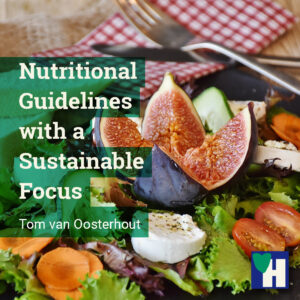
Nutritional guidelines with a sustainable focus are hard to come by. A sustainable nutritional guideline combines such diverse goals as a healthy lifestyle, weight control, a nutritious diet, animal welfare, biodiversity, fertile soil, waste and energy reduction, good labor conditions, affordable prices, and a fair income.
It’s easy to attribute good health to our diet. However, there is limited truth in this. Our age, the height and weight of our body, our lifestyle, hereditary factors, our hormones, medication, and in general, our health status, contribute to how we feel.
Of course, as far as food can make us feel better, it is good to reflect on our dietary intake with a nutritional guideline. The governments of more than 100 countries issued such guidelines.
However, even a quick scan of these guidelines shows that none of them incorporate sustainability goals. This article gives some clues on how we can focus our dietary intake on nutrition, health, and sustainability at the same time.
Some of the links are affiliate links. As an affiliate associate, we earn a commission when you purchase any of the products offered through the shared links at no extra cost for you. This helps us maintain this website.
Table of contents
Nutritional guidelines with a sustainable focus
The best sustainable nutritional guideline is that we get control of our eating habits and discipline ourselves to eat less and organic, without sacrificing the taste of what we eat.
Enough words, we need actions

From October 31 to November 12, 2021, the United Nations will organize a major climate change conference in Glasgow, Scotland.
In a run-up to this conference, cities from all over the world united in Barcelona, Spain, for the 7th global forum of the Milan Urban Food Policy Pact (MUFPP).
On Tuesday, October 19, the mayors of Glasgow, Susan Aitken, and Barcelona, Ada Colau, introduced the significance of the MUFPP-forum in a short article in the Spanish newspaper El Pais.
Both mayors call on the political world to change the way we produce and consume our food. In their view, cities are the most significant factor in achieving this change.
The two mayors should be valued for the beliefs they presented. I also agree with the core message in their article: enough words, we need actions.
Because in the article the mayors did hardly offer any actions, I offer four of the most significant actions we, as citizens, can decide on ourselves: balance the dietary intake, eat meat just once a week, control portions, and control calories.
Balance your dietary intake
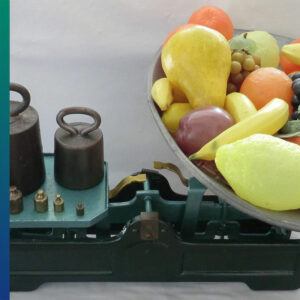
Although there is an abundant amount of information on the Internet on food, it’s very easy to get lost. Just try to answer the question of how we can combine the goal of a steady and acceptable weight, with good health, and nutritious and sustainable food.
The UK National Health Service provides an excellent plan with a food and activity chart on which the progress of weight loss can be registered. However, this plan only balances the aim of losing weight with our health and our dietary intake.
The plan provides all kinds of suggestions, and links, not the least for very tasty recipes. The consequences of the plan for sustainable goals such as mentioned above are unclear though. There is not even a reference to the reduction of food waste.
Related: Unlock the Benefits of Reducing Food Waste with a Personal Food Plan
The once-a-week meat challenge
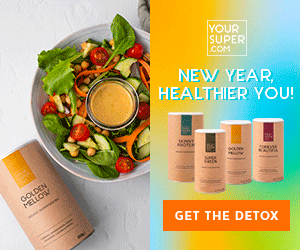
From the perspective of nutritional guidelines, the easiest way to contribute to sustainability goals is by skipping our meat habits. If you are used to eating meat: start with the once-a-week meat challenge. Don’t eat more than 150-gram portions. And make this an organic meat portion.
Don’t mix meat with grain products and potatoes or rice. Eat it with fresh baked or steamed vegetables or a salad with a thin dressing of the finest olive oil and vinegar. Boost the flavor with bell pepper and cucumber.
The reduction of meat consumption contributes substantially to sustainability goals. The production of meat comes with the growing of soy for which tropical forests are destroyed, comes with cruel animal welfare and unfair trade conditions (huge subsidies go to pig and chicken farmers).
Moreover, the production of meat is a major contribution to climate change.
Let’s control our portions
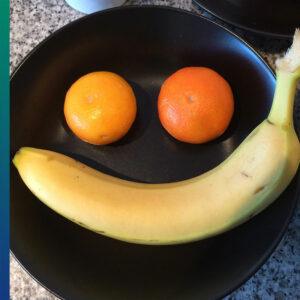
Throughout the year supermarkets offer an abundant amount of food. They invest a lot in ways to seduce us to buy as much as possible. Moreover, much food in supermarkets comes in plastic or has to be put in plastic bags at the fresh food department.
Having been seduced and bought too much food in the supermarket, we tend to put far too many calories on our plates. To get rid of this ‘portion distortion’ some rules of thumb:
- Eat before you go shopping;
- Try to buy as much fresh food as possible;
- Use smaller plates and bowls (and cutlery I might add);
- Serve two types of vegetables (preferably of different colors);
- Supplement your food with nuts and seeds, or buy ready-made supplements;
- Spice your food with homegrown fresh herbs;
- Eat slowly (and chew your food accordingly);
- Turn off the TV (my advice: dump the TV altogether);
- Weigh the food you serve (don’t overdo this, try to learn to estimate the calories of your food).
Related:
Nuts for our Brain, and other Superior Health Benefits
Best Seeds to Eat for your Daily Dose of Healthy Supplements
How to Choose Supplements that are Beneficial and Important
Let’s control our calories
When we control our portion, we control our calories. If we want to maintain our preferred weight, men need a daily calorie intake of 2500 Kcal and women 2000 Kcal. To lose weight it is safe to lower our daily calorie intake to 1900, for men, or 1400, for women. Provided you have some weight to lose.
If we want to be sure how many calories we serve at a meal, we try to estimate the weight of the portions we prepare. By adding up the calories of the different portions we eat, we’re able to work out the total calories we take in during the day.
We’re careful not to turn the search for calories into an obsession. The NHS calorie checker is an excellent way to get a first impression. Remember, a piece of carrot cake contains ten times more calories than four small raw carrots. And I love carrot cake.
I don’t like oatmeal porridge
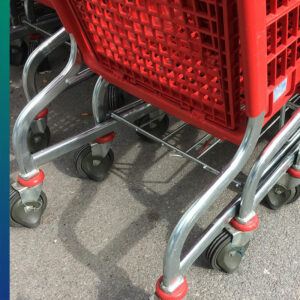
In 2050 the earth will inhabit 10 billion people. If we can’t balance this amount of people with our agricultural and environmental capacities, the only thing we will all eat in 2050 is oatmeal porridge.
I am not a fan of porridge, let alone oatmeal porridge. To only eat oatmeal porridge is all but healthy. Moreover, agricultural monocultures are already bad for the environment and biodiversity.
To prevent this food catastrophe, we need to radically change our agricultural customs. Organic farming should be the standard. This is a challenge because a more sustainable agriculture requires more land.
Of course, there are some interesting alternatives, such as vertical city gardens and water culture boxes you can install at home. Although they are promising, the question remains whether these alternatives can provide enough food.
Nutritional guidelines with a sustainable focus
We try to nudge the bar of our lifestyle with a sustainable focus. To integrate food, health, and sustainability goals is not a piece of cake though. We are regularly confronted with setbacks. However, in general, we move forward, albeit slowly.
There are 5 ways in which we learn to combine nutritional guidelines with a sustainable focus:
- From information on the Internet and by participating in citizen initiatives that focus on a more sustainable agriculture;
- By exchanging ideas and insights with our friends;
- We experiment with our kitchen garden and with very small steps we vary our food intake;
- By helping others to grow organic food;
- We only buy and eat organic food.
An important source to integrate our food, health, and sustainability goals are dietary guidelines. There are many of these guidelines in the world, but only a few of them integrate these goals.
Rules of thumb
In summary, the best nutritional guideline with a sustainable focus is a plant-based diet. This has tremendous advantages over a meat-based diet. The impact of meat production and consumption and agricultural monocultures on the environment and biodiversity is horrendous.
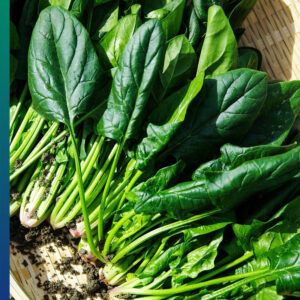
We buy and eat organic food because this serves at the same time health and sustainability goals. In organic agriculture, no chemical fertilizer, insecticides, pesticides, or fungicides are used.
Nutritional guidelines with a sustainable focus come with the following practical rules of thumb:
- Restrain the consumption of poultry to once a week;
- Only eat a very small amount;
- Don’t eat pork or beef or processed meat or fish;
- Eat as much fresh food as possible;
- Prefer carrots, tubers, and turnips over salads;
- Eat fruits and vegetables from the season and preferably local (for us this is easy because we live in Spain’s fruit and vegetable basket);
- Alternate raw foods with steamed or cooked versions;
- Eat 500gr vegetables daily;
- Use little amounts of water and (only olive) oil for cooking;
- Try not to overcook food;
- Chew food with some perseverance.
Can you relate to these rules of thumb? Tell us in the comment box below.

These are excellent recommendations. I eat a plant-based diet and ever since I have been eating vegan foods, I have felt the positive changes in my body.
The growing world population is frightening, and 10 billion people by 2050 is a scary number. Something must change and that something means us people. Most people don’t want to make that change and so as long as there is demand for the products that are detrimental for the planet, these products will continue, unfortunately …
I don’t know what it will take for people to finally get their act together, don’t they usually start panicking when it is too late …? I hope that this time we can act more responsibly in regards to our nutrition and make some necessary changes in our lives before it is too late.
Hi Christine,
It’s never too late to start changes. Even when times are desperate. Recently I read a short novel about the 900 day siege of Leningrad (Sint-Petersburg). Compared to what the citizens of that city experienced, our times are not that bad.
And yet you’re right. We panic when it’s too late. More specifically so because most of us live in their own bubble. However, let’s not forget that we’re often forced to live that bubble. Most people have to work all day. After work they have to take care of each other and for many also the kids and parents or grandparents. Most women run double, triple or even quadruple shifts. I understand that when they have to shop for food and drinks they take the easy route.
Fundamental changes are necessary and at the same time almost impossible. One of my hobbyhorses is that the control of the grocery market must be given back to the consumers. In many countries only a very limited amount of men (usually no more than 4 or 5) decide what people get to eat. These men are managers in a limited number of very large companies of the food industry. They could start to make serious changes. But they’re only driven by profit. This is one of the reasons why we eat organic. We want to control the food we eat as much as possible ourselves. This is also why we try to connect with producers and distributors. Which is also great fun.
I know that after ‘the proud boys’ it is a bit difficult to say that we must be proud of ourselves, but I think we should.
Be the change you want to see in the world (Satyagraha – Gandhi).
Thank you for your comment and compliments.
Stay safe, stay healthy.
Ragards,
Tom
Great article Tom.
I agree we need to make conscious food choices and this includes knowing where our food comes from and how it is grown or processed.
I also agree we need to learn about portion control. It is true many countries do offer some sort of food guide but in all honesty, I don’t think they are worth the paper they are printed on.
I don’t know about European countries but I do know that if I ate the amounts of food the Canada Food Guide recommends I would gain weight which is not at all my personal goal.
While I do grow much of our own vegetables it is not enough to be totally self-sufficient so we do buy local organic when necessary.
I am not certain if I can convince Rick to give up red meat, he does love his steak and burgers on the grill. I have been reducing my own meat intake and do feel healthier for it.
I am not quite at the once a week mark yet but maybe someday I’ll get there. Definitely worth working on.
I really hope we can avoid having to eat only oatmeal porridge. Yuck, I think I would starve. lol Do you really think that would happen?
Hi Deb,
“In the year 2022, the cumulative effects of overpopulation, pollution, and some apparent climate catastrophe have caused severe worldwide shortages of food, water and housing. … Soylent Industries, which derives its name from a combination of “soy” and “lentil”, controls the food supply of half of the world and sells the artificially produced wafers, including “Soylent Red” and “Soylent Yellow”. Their latest product is the far more flavorful and nutritious “Soylent Green”, advertised as being made from ocean plankton, but is in short supply. As a result of the weekly supply bottlenecks, the hungry masses regularly riot, and they are brutally removed from the streets by means of police vehicles that scoop the rioters with large shovels and dump them within the vehicle’s container.”
This is a very short excerpt of the description of the 1973 movie Soylent Green on wikipedia. Someone discovers that there’s no plankton anymore in the oceans and that “Soylent Green” is made from the human bodies scooped from the streets by the police.
I’ve seen this movie more than once. It’s what they call a cult-movie, I guess. We now live in the year 2021. When we have to believe the movie we’ve only one year left before our proteins will be recycled to feed the world population. We will all become cannibals. This story is far more scary as the oatmeal porridge catastrophy.
As such the movie is not unrealistic. For decades meat-and-bone meal has been used as feedstuff for pigs and bovines. This practice resulted in Bovine Spongiform Encephalopathy (BSE): mad cow disease. Humans were suspected to get the ‘variant Creutzfeld-Jacob Disease’ (vCJD) from eating BSE infected meat. The control for BSE-infected meat costs the consumers and taxpayers each year a fortune.
However, personally I don’t think we will have to face the oatmeal porridge catastrophy. There’s too much at stake to make this happen. Besides there is some substantial risk in predictions. In 1973 the year 2022 was still almost 50 years away. When we look 50 years ahead, and into the 22nd century, there is some light at the end of the tunnel. From 2050 and beyond the world population will slowly decrease.
I’m a great fan of science-fiction, books and movies. My favorite authors are Asimov and William Gibson. My favorite sci-fi movie is Dune. What I like about science-fiction is that it’s fiction. It’s supposed to entertain. And although I agree with Elvis Costello that the truth can’t hurt you, the truth is not as much entertaining.
Thank you again for your comment and compliments.
Stay safe, stay healthy.
Regards,
Tom
It is amazing how well you are informed, Tom! I confirm very much of your article. For me, it has always been the most important for the health and well-being of the animals, and I can cry when I get confronted with their suffering. It breaks my heart! I am only using farmer markets and buy organic meat where I know it is coming from. We eat a minimal amount of meat, well every day, but always organic—the same for vegetables and fruits. My husband still needs his dairy; he is a real dutchman. I can’t convince him that this is bad for him. But I do the cooking, so I try to cook healthy for him. For me, the only way to stay healthy is a salad with a bit of meat or fish. Grains are making us ill and big, especially combined with sugar and unhealthy fats.
You have me going again, Tom. This is the top information! Thank you so much!
And I love to dump the television too! 🙂 Great idea!
Hi Sylvia,
Thank you very much for your flattering compliments and comment. I’m walking next to my shoes.
In one of my future articles I will elaborate some more about dairy. I don’t eat or drink (hardly) any dairy products because my body objects. Many people have no problems with dairy. A friend of mine is a biologist and one of the best scientific experts on milk cows. He publishes regularly in specialized magazines in the USA and Canada. Together we did a lot of research in agriculture. It’s an economic sector that I carry very close to my heart.
It’s interesting you mention animal welfare. This has not been a real issue for me for a very long time. Perhaps the fact that I don’t eat meat already over 40 years, made me blind for this. The American journalist Eric Schlosser openend my eyes for the horrendous conditions in the meat industry. In the USA I visited mega-dairy farms (5,000 dairy cows is nothing). Although the farmers talk with love and pride about there animals, for me the circumstances the animals had to live in was far from perfect. Not to mention the enormous problems the methane production of the cows produce for the climate. This is a far bigger problem than CO2.
Well, we don’t have to convert you anymore to organic or a more sustainable lifestyle. That’s nice. The more the better.
For now, stay safe, stay healthy.
Regards,
Tom
Wow, great tips. The only thing that bothers me is that I have 102kg. So, will the 150grams portion be enough for my weight? You offered great advice, I’ll have to try it for one week and see if I can lose some weight. Also, I like to eat bread a lot, do you think that I should completely stop eating bread or just reduce the intake?
Thanks,
Petar
Hi Petar,
With my 1,76 meter I weigh 75kg. My condition is good. I don’t have to do any heavy labor or run a marathon. To answer your question: when you’re 2 meters high, have broad shoulders and large muscles, and lift heavy weights or cycle some 100 kilometers each day, my guess is you probably need at least 150 gram meat portions everyday. Although there are professional cyclists who compete in the Tour de France and don’t eat any meat.
You have to eat what you need. And you’re the only one, besides a dietician, who knows what you need. What you need to eat is a tricky balance between your genetics, the build of your body, your metabolism, and the type, the duration, and amount of exercise.
When you want to loose weight, take more time than just one week. It took me 2 years to loose 20kg. When you try to loose weight in a short period of time the risk of a relapse is pretty strong. To loose weight and at the same time keep up your health and your condition takes a lot of discipline. You can take it from me though, it’s very much worth the effort. I never felt that good after losing all those kg’s.
Bread. My grandfather was a baker with a bakery and shop in the middle of town. When I was a child my mother took me and my brother and sister everyday to the bakery. She wanted to be sure we got the best food. This was not such a good idea. Until this very day I can smell a bakery from miles away. When Hannie and I visit another unknown city I can always tell her afterwards how many bakeries I’ve seen (smelled actually). She never notices any. I love bread. I eat bread. Yet with some restrictions: never much more than 1/2 a bread a week and only with vegetable soup or with vegetables on the bread (e.g. tomato, salad, onion).
The advantages of bread are clear. It’s tasty, it doesn’t take much cooking or preparing efforts (unless you make your own brad), and it gives you the feeling of a full stomach. There are also many different types of bread. I prefer the heaviest types of whole wheat bread. Only know and again I eat white bread. Mostly in a restaurant. Again, how much bread you eat depends a lot of the balance I referred at. You could start though to skip mixing the bread you eat with cheese or meat. Use vegetables instead.
Thank you for your comment, and compliments. Stay safe, stay healthy.
Regards,
Tom